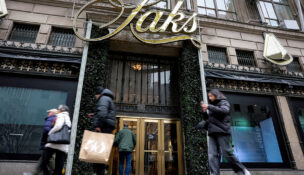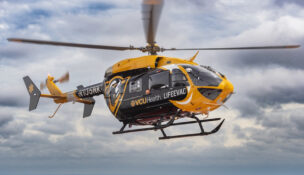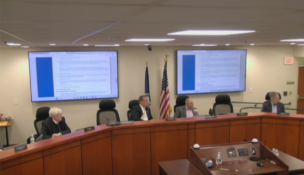Orbital Sciences doesn’t expect rocket launch failure to impact 2014 outlook
Virginia Business //October 29, 2014//
Orbital Sciences doesn’t expect rocket launch failure to impact 2014 outlook
Virginia Business //October 29, 2014//
Dulles-based Orbital Sciences said Wednesday that it does not expect Tuesday’s Antares rocket launch failure to affect its 2014 outlook, but is unclear what impact the incident will have on the company next year.
Orbital intended to launch the Antares rocket carrying the Cygnus spacecraft from NASA’s Wallops Flight Facility on Wallops Island. Seconds after launching, the rocket and spacecraft, exploded into a fireball. The spacecraft was carrying noncritical supplies to NASA’s International Space Station.
No one was injured from the incident and Orbital is conducting an investigation along with NASA, the Mid-Atlantic Regional Spaceport and the National Transportation Safety Board.
Investors reacted negatively to the news Wednesday. When the New York Stock Exchange closed, Orbital’s stock had fallen by nearly 17 percent, closing at $25.27 per share.
In a conference call Wednesday, the company said its 2014 outlook remains unchanged because insurance will cover facility repairs and payment holdbacks because of the launch failure.
Orbital’s Chairman and CEO David W. Thompson also said that, to his knowledge, the company’s proposed merger with ATK’s aerospace and defense businesses will continue.
In a separate statement issued Wednesday, Arlington-based ATK said it was conducting its own investigation, “including current operating plans, long-term strategies, and the proposed transaction to merge the company's Aerospace and Defense businesses with Orbital.”
Orbital Chief Financial Officer Garrett E. Pierce said it is unclear how long it will take for Antares to return to flight status. Antares’ next scheduled flight was originally set for April. Thompson said the investigation may or may not lead Orbital to conclude that the accident was caused by the AJ-26 rocket engine.
“As most of you know the AJ-26 rocket engine used in that system have presented us with some serious technical and supply challenges in the past, so notwithstanding the previous successful flights of Antares before yesterday, Orbital has been reviewing alternatives since the middle of last year and recently selected a different main propulsion system for future use by Antares,” Thompson said. “It is possible that we may decide to accelerate this change if the [rocket’s] AJ26 turns out to be implicated in the failure but this has not yet been decided.”
Thompson said that the launch pad complex appears to have been spared from major damage. The Antares vehicle assembly building and Cygnus spacecraft processing facilities in the Wallops area were not affected, he says.
In the past three decades, Orbital noted it had conducted 284 major rocket launches with a 95 percent success rate. In the last 10 years, the success rate was 96 percent in 106 major rocket launches. Orbital reported revenues of more than $1.3 billion for 2013.



















